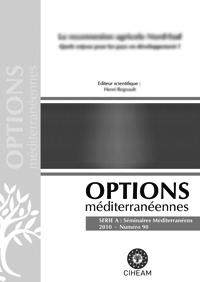| Article précédent | p. 91-95 | Article suivant |
Modeling irrigation in a farm in Portugal
Irrigation is a major environmental problem due to water consumption and pollution. Therefore, it is desirable to use the minimum amount of irrigation water necessary to keep crops at their optimum producing level. Here, a model that simulates soil water balance, using several factors including crop and soil characteristics and meteorological data is presented. The soil water balance is modeled, for a farm, for June 2001. For instance, maize requires 50 mm of water every 13 days and wheat requires 22 mm of water every 5 days. A sensitivity analysis to irrigation frequency is also performed showing that a higher frequency represents, for example, an 11 per cent decrease in water consumption for wheat in June 2001. A comparison between irrigation needs in different types of soil shows the potential of this model as a tool to help planning farm land use.
- [ Afficher ]
- [ Télécharger ]
- [ Exporter la citation ]
Vous pouvez télécharger la citation au format :
- [ Imprimer ]
-
Mots-clés
BILAN HYDRIQUE DU SOL, CALENDRIER DES IRRIGATIONS, EVAPOTRANSPIRATION, IRRIGATION, MODELE, PORTUGALCiter cet article
Palma J., Sousa T., Pita G., Domingos J. Modeling irrigation in a farm in Portugal. In : Cantero-Martínez C. (ed.), Gabiña D. (ed.). Mediterranean rainfed agriculture: Strategies for sustainability . Zaragoza : CIHEAM, 2004. p. 91-95. (Options Méditerranéennes : Série A. Séminaires Méditerranéens; n. 60). Final Seminar of the Regional Action Programme on Rainfed Agriculture (RAP-RAG), 2003/06/02-03, Zaragoza (Spain). http://om.ciheam.org/om/pdf/a60/04600050.pdf



